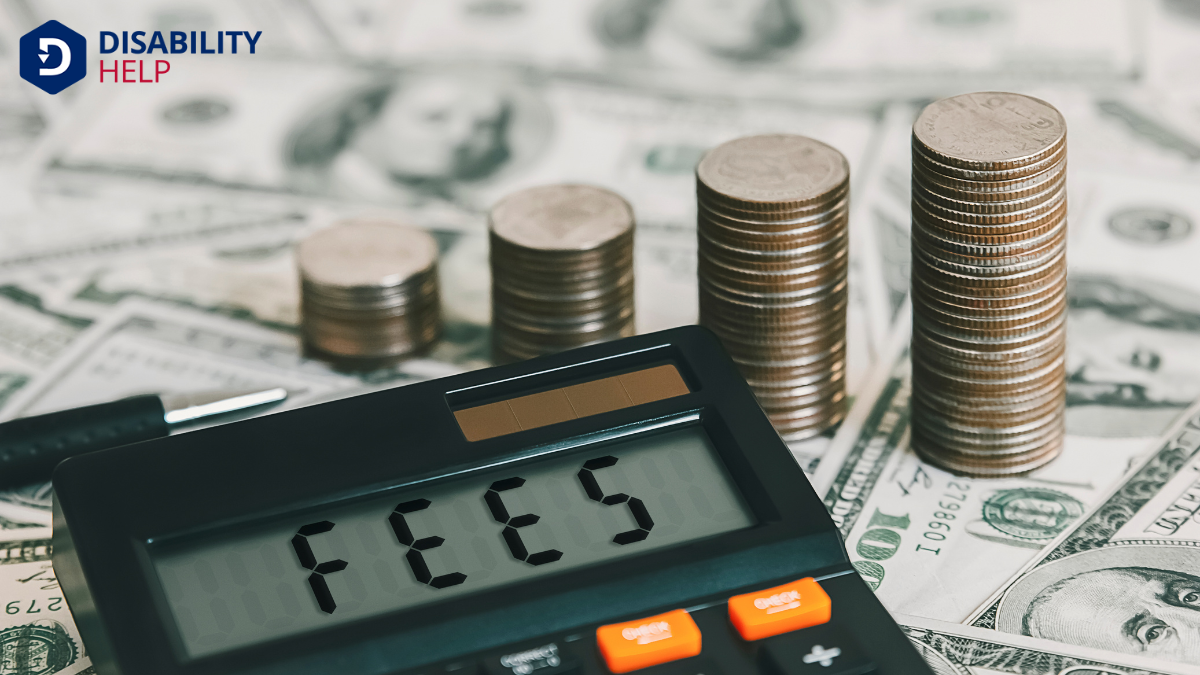Let's explore what a success fee in personal injury cases means. Fundamentally, it's a contingency fee arrangement where a lawyer's payment hinges on winning or settling a case. This can be a game-changer for clients who can't afford upfront costs. But how exactly does this influence the client-lawyer dynamic, and what should we consider before entering such an agreement? There's much more to unpack about this intriguing aspect of legal representationThe way people with disabilities are depicted in media, culture, and politics, often influencing pub....
Key Takeaways
- A success fee is a contingency payment structure where lawyers are only paid if the personal injury case is won.
- Lawyers receive a percentage of the compensation awarded, aligning their financial interests with the client's success.
- This fee arrangement eliminates upfront costs, providing access to legal services without initial financial burden.
- Success fees can reduce the client's total compensation, as a portion is allocated to the attorney.
- Legal regulations ensure transparency in success fee agreements, protecting client interests in personal injury cases.
Understanding the Basics of Success Fees
When it comes to personal injury cases, understanding success fees is essential. We, as individuals seeking justice, want to know that our legal representation is both effective and fair.
Success fees are a type of contingency fee agreement where the lawyer's payment depends on the outcome of the case. Simply put, if we win, the lawyer receives a percentage of the compensation awarded. This arrangement aligns the lawyer’s interests with ours, since they’re motivated to secure the best possible outcome.
Success fees provide access to legal services without upfront costs, making justice more attainable. They also assure us that our attorney believes in our case.
How Success Fees Differ From Traditional Legal Fees

When we compare success fees to traditional legal fees, the most significant difference lies in the contingency fee structure.
Instead of paying upfront or hourly, we only pay our lawyer if we win or settle our case. This payment upon settlement aligns our lawyer’s incentives with our own, ensuring they’re motivated to achieve the best outcome for us.
Contingency Fee Structure
While guiding personal injury cases, understanding the contingency fee structure is essential. It means we don't pay upfront legal fees; instead, our attorney gets paid only if we win. This fee is usually a percentage of the settlement or award.
By not requiring upfront payments, the contingency fee structure guarantees legal representation is accessible, regardless of our financial situation.
The incentive for our attorney aligns with our interests—they're motivated to achieve the best possible outcome because their payment depends on it. This differs from traditional legal fees, where we'd typically pay hourly, regardless of the case's result.
With contingency fees, we share the financial risk, making it a compelling option for those pursuing justice without immediate financial burden.
Payment Upon Settlement
Unlike traditional legal fees, success fees only come into play once a settlement is reached. This means we don’t pay upfront or hourly fees as we'd with other legal arrangements. Instead, we align our interests with our attorney’s; they only get paid when we win.
This approach can be more manageable for us because it reduces financial pressure during an already stressful time. Traditional fees often require payment regardless of the case's outcome, which can be overwhelming.
In contrast, success fees provide a safety net, ensuring our lawyer is motivated to secure the best result possible. This payment structure makes legal services more accessible, encouraging attorneys to work diligently on our behalf, knowing their compensation depends on our success.
The Benefits of a Success Fee Arrangement
Opting for a success fee arrangement in personal injury cases can offer significant advantages. We only pay our attorney if they secure a favorable outcome, aligning their interests with ours. This type of arrangement often motivates attorneys to give their best effort, knowing their compensation depends on our success.
Here’s why it benefits us:
- Financial Relief: We don’t need to worry about upfront legal fees, easing financial stress.
- Shared Risk: Attorneys share the case's risk, making them more selective and diligent.
- Increased Access: It allows us to hire skilled attorneys without immediate financial burdens.
- Focus on Results: Attorneys are goal-oriented, aiming for the best possible outcome for us.
Potential Drawbacks to Consider
Although success fee arrangements offer distinct advantages, it’s crucial to evaluate their potential drawbacks. One concern is the percentage lawyers might charge, which can markedly reduce our compensation if we win. We might end up receiving less than anticipated, impacting our financial recovery after an injury.
Additionally, if the case is settled quickly, we could feel the fee isn't justified by the effort involved. There's also the risk that attorneys might prioritize quicker settlements over pursuing the maximum possible compensation, affecting the case's outcome.
Another drawback is the lack of predictability. Since fees are contingent on the settlement amount, we might find it challenging to estimate costs upfront.
Understanding these potential downsides helps us make informed decisions about pursuing a success fee arrangement.
How Success Fees Impact Client-Lawyer Relationships

Let's consider how success fees influence our relationship with our lawyer, focusing on trust and communication.
When a lawyer's fee depends on the case outcome, it may align their incentives with ours, potentially strengthening our collaboration.
However, we must also be aware of possible conflicts of interest that could arise, impacting the attorney's advice and our case's direction.
Trust and Communication Dynamics
When we consider the trust and communication dynamics in client-lawyer relationships, success fees play a pivotal role. These fees align our interests with those of our lawyer, fostering a partnership based on mutual goals.
Understanding these dynamics can enhance our relationship, creating a more transparent and trusting environment. Here are some key ways success fees influence our interaction:
- Shared Goals: We both aim for a favorable outcome, strengthening our collaboration.
- Open Communication: Success fees encourage us to discuss case progress openly.
- Confidence in Representation: We feel assured that our lawyer is motivated to win.
- Reduced Financial Stress: Knowing fees are contingent on success eases our financial worries.
Incentives for Case Outcomes
Success fees inherently create strong incentives for both us and our lawyer to aim for the best possible case outcome. These fees align our interests, as a successful resolution benefits everyone involved.
We're motivated to provide all necessary information and collaborate effectively, knowing our lawyer is equally invested in winning. This shared goal fosters a collaborative spirit, strengthening our relationship with our lawyer.
Our lawyer, in turn, has a direct financial interest in securing the best settlement or verdict. This means they're more likely to dedicate time and resources to our case, ensuring thorough preparation and strategic planning.
Conflict of Interest Concerns
While success fees align our goals with our lawyer's, they can also introduce potential conflicts of interest that we need to be aware of.
It's essential to reflect on how these fees might impact our relationship with our attorney. Here are some concerns to keep in mind:
- Settlement Pressure: Our lawyer might push for a quick settlement to secure their fee, even if it's not in our best interest.
- Case Selection: They may prioritize cases with higher chances of success, potentially leaving complex cases behind.
- Resource Allocation: Lawyers might allocate less time and resources to our case if they deem it less profitable.
- Client Communication: We might experience less transparency if our lawyer's financial interests overshadow our needs.
Understanding these dynamics helps us navigate our partnership effectively.
Determining the Percentage of a Success Fee
Understanding how to determine the percentage of a success fee in personal injury cases is essential for both attorneys and clients.
We need to take into account factors like the complexity of the case, potential recovery amount, and risk involved. Typically, success fee percentages range from 25% to 40%.
However, it’s important we discuss and agree on this percentage upfront to avoid misunderstandings later.
We should also be aware that the percentage might vary depending on whether the case settles before trial or goes to court.
The more complex or risky a case, the higher the percentage might be.
Legal Regulations and Ethical Considerations
When handling personal injury cases, we must navigate the legal regulations and ethical considerations that govern success fees.
These guidelines guarantee that both the client and attorney have a fair arrangement. Understanding these regulations helps us maintain integrity and trust in our practice.
Here are some key points we should consider:
- State Laws: Each state has specific laws about the maximum percentage an attorney can charge as a success fee.
- Transparency: We should clearly explain how fees are calculated and any potential additional costs.
- Client's Best Interest: Our primary focus should always be on achieving the best outcome for the client.
- Written Agreement: It's essential to have a written agreement detailing the success fee structure to avoid misunderstandings.
Tips for Negotiating a Success Fee Agreement

How can we effectively negotiate a success fee agreement that benefits both parties? First, let's research typical success fee percentages in personal injury cases so we're informed.
It's essential to discuss expectations openly with our attorney, guaranteeing we're on the same page about potential outcomes and associated fees. We should ask questions about how expenses will be handled and whether they'll be deducted before or after the fee is calculated. Transparency is key.
Next, consider negotiating a cap on the success fee to protect ourselves from unexpectedly high costs. We should also clarify under what circumstances the fee might change.
Finally, let’s get everything in writing; a clear, detailed agreement prevents misunderstandings and assures both parties honor their commitments. This approach fosters trust and fairness.
Real-Life Examples and Case Studies
Although personal anecdotes can vary, they offer valuable insights into the practicalities of success fee agreements in personal injury cases.
Let’s explore a few scenarios that illustrate how these agreements play out in real life. By examining these examples, we can better understand the impact of success fees on both clients and attorneys.
- Case Study 1: A car accident victim agreed to a 30% success fee, resulting in a substantial payout after a favorable verdict.
- Case Study 2: A slip-and-fall case settled quickly, and the client paid a reduced fee due to the lower time commitment.
- Case Study 3: An attorney took a challenging medical malpractice case on a contingency basis, leading to a significant settlement.
- Case Study 4: A client chose a firm with a no-win, no-fee policy, minimizing financial risk.
Conclusion
In our exploration of success fees in personal injury cases, we've seen how they offer a unique opportunity for clients to pursue justice without upfront costs. While these arrangements align our interests with the client’s, it’s crucial to weigh both benefits and potential drawbacks. By understanding legal regulations, negotiating wisely, and maintaining open communication, we can foster strong client-lawyer relationships and work towards achieving the best possible outcomes together. Let’s approach success fees with informed confidence.






